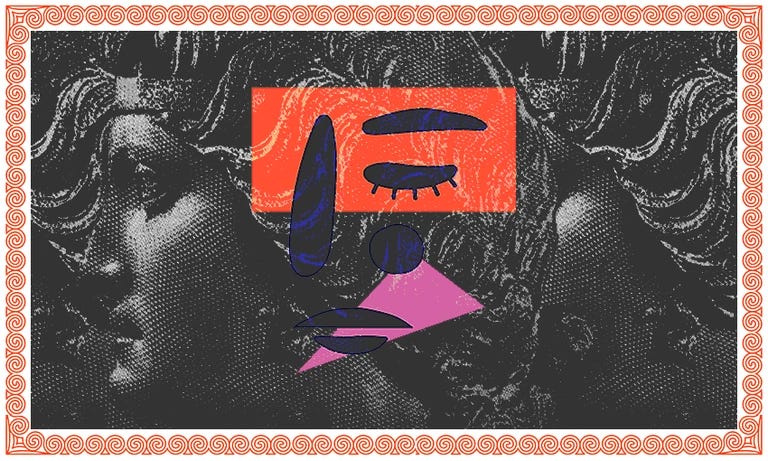Mōrena and welcome to The Weekend, where it is hopefully sunny in your neck of the woods. Today was a big week for all New Zealanders, no matter how politically engaged you are. On Thursday, finance minister Nicola Willis released the first budget of this coalition government and at the same time, thousands across the country marched in protest against government policies affecting Māori.
It would’ve been a busy week to start any job in journalism but it was a particularly busy week for Liam Rātana to start his new job as The Spinoff’s Ātea editor. Liam had his first day in the office on Monday and by Wednesday had written an explainer on tax cuts and inflation, and a compelling feature on Māori protest and the future of activism.
There are few Māori print journalists in New Zealand and even fewer who have a clear remit of telling stories within te ao Māori. It can be (and often is) a daunting task. Any writer who represents or seeks to tell the stories of underserved communities inevitably faces the challenge of trying to tell all stories and also having to tell them exactly right to serve those communities, even (or especially) when that means challenging them.
I’m excited to have Liam joining our team and leading our coverage of te ao Māori. As he talks about on this week’s episode of Behind the Story, while there has been a heartening growth in Māori broadcasters, in his new role Liam’s hoping to convince a few young Māori that writing is the way to go. Watch this space.
And if you have a story you think Liam would be interested in, send your pitches to liam@thespinoff.co.nz.
What if we’d legalised weed?
Often in politics, stories or debates will flare up and die down, never to be spoken of again. In 2020, weed was on everyone’s mind as the country voted on whether or not to legalise cannabis. In the end (and only just), the country voted no. Regular contributor Rachel Judkins went deep into an alternate reality and laid out what Aotearoa may have looked like now had the yes vote won out four years ago. It’s comprehensive and well worth your time.
Behind the Story
The Spinoff’s new Ātea editor Liam Rātana started in his role on Monday. On Thursday there were nationwide protests against government policies affecting Māori, as well as the release of the coalition government’s first budget. Rātana jumped straight in, writing a number of stories including a feature on the protests that looked more broadly at Māori activism and asked: Is protesting still the most effective way to bring about lasting change? It’s a compelling read, presenting the views of those who favour different methods of lobbying, and is a strong indication of how Liam approaches his work – with a curious mind and an interest in hearing out all perspectives. Liam joins Madeleine Chapman on Behind the Story to talk te ao Māori reporting and his quest to develop more Māori print journalists.
We are so close — The Spinoff Welly 500
Over 400 people have already joined our new community of supporters, and we are grateful for your tautoko of our Wellington coverage. Last August, The Spinoff hired Joel MacManus as its first-ever Wellington editor. Wellingtonians have always supported us, and Joel coming on board has meant we’ve been able to start returning the favour with a dedicated focus. We have to close this off when we hit 500 people but have room for a few more to donate $50 or more and join The Spinoff Welly 500. Find out more or join today.
An internal argument about hate speech and power
Perhaps my favourite Spinoff format of them all is “an argument with myself”. An argument with myself is when a writer has strong thoughts about a topic or issue but doesn’t feel like they fall neatly on either side. Rather than hedging their bets, we encourage writers to argue both sides with equal passion. This week, senior editor Madeleine Holden argues with herself about whether the constant public defending of female MPs from angry speech online is admirable or just another way to silence the lower classes. Holden doesn’t hold back and you’ll likely find yourself convinced by both versions of her by the end.
The entire history of my nose
“In a lush waiting room in a renovated Remuera villa, I shift restlessly on the edge of my chair. I’m ridiculously early. I spent 20 minutes in the car outside and now I’m passing the remaining 15 staring at the ornate flowers on display. They’re flawless. I wonder how often they are replaced.
I’ve been waiting six months for this appointment, on top of the 28 years it took to accumulate enough nerve to book a consultation for a nose job, but the final minutes seem to stretch into infinitely dividing segments.”
The stories Spinoff readers spent the most time with this week
The long read of the week: Rachel Judkins’s researched and thoughtful imaginings on what Aotearoa might have looked like today if we legalised weed in 2020.
From a local Facebook group to the front page — my opinion on recent stories about “concern” about “container” homes and the bleak reason for it.
Staff writer (and newly minted Voyager Media Award winner for Best Junior Feature Writer) Gabi Lardies returned from her overseas trip with one question on her mind: Why can’t I pick up my own dropped phone on a plane?
Wellington editor Joel MacManus attended two media lock-ups this week. The first was for the release of Census data and the second was for the budget.
More recommended reads for your weekend
Max Rashbrooke had a must-read analysis of this year’s budget
Taite Music Prize winner Vera Ellen walks us through her perfect weekend playlist
Never know what books to read? Here’s a handy guide to the largest online book communities, complete with recommendations
After Israel’s horrific attack on a refugee settlement in Rafah drew near-silence from the New Zealand government, Gabi Lardies asks: Have we lost our voice on moral issues?
‘Pretty terrifying’: Matt Heath’s near death experience in a monkey costume
Reader feedback of the week
On Rachel’s imaginings of legalised weed
On what makes the news and “container” homes
Small and earnest shout but it never stops feeling great when journalism is genuinely helpful and prompts a bit of real world action – this on Shanti Mathias’s Māori Wards explainer.
Thanks for reading and see you next week,
— Madeleine Chapman


















